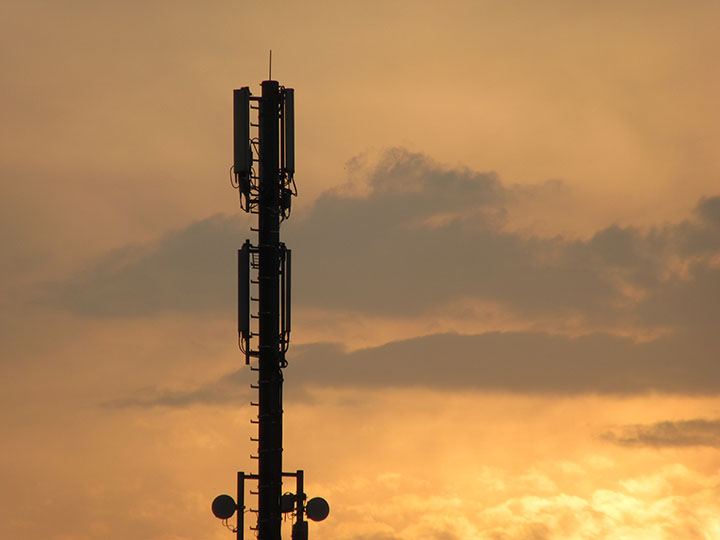First, what exactly is 5G? 5G is the 5th
Generation of mobile network technology, designed to provide even faster
connection than its predecessor, 4G/LTE. We use this technology to get internet on cell phones.
5G is essentially communication between devices that uses higher frequency waves, which allow information to be transmitted more quickly. Over the last several years, this technology has generated quite a bit of controversy, mainly due to concerns around its effects on human health. Generally, the concerns arise because there is a lot of research demonstrating the negative health consequences of radiation from our everyday technology like cell phones, WiFi, and Bluetooth. The logic is that because these 5G waves are more intense, they will cause more harm than the technologies we are already using. It is important to understand that the question we’re trying to answer is whether 5G is more dangerous than current technology. As mentioned, it’s well-documented that radiation from our devices can cause issues ranging from neurological diseases to cancer – so nobody is expecting 5G to be perfectly safe. I have done some research to try to answer that question, and here is what I’ve found.
Things are much less clear than I expected. First, there hasn’t actually been much research on this issue. According to many scientists, that’s exactly the problem. It’s not that 5G has been demonstrated to be extremely dangerous, but more that we just don’t know much about it yet, and companies are already putting up towers that will be pumping out 5G. There are several reasons why researchers believe that we do have reason to worry. The existing 5G studies only considered 5G in isolation, without combining it with all the other radiation we experience. These different kinds of radiation have been shown to have a combined effect, worsening the consequences of each other. So, there is reason to believe that the current findings of 5G underestimate the real effects because of the “pristine” experimental conditions.
Interestingly, there was active research into this subject by the USSR in 1970s, followed by the US later decades, which has only been declassified in 2012. Although the experiments used extremely large amounts of radiation (which we wouldn’t experience), they showed us something potentially crucial that we might not be considered yet. The most conversation around 5G safety revolves around its effects on the skin and eyes. This is because 5G waves, though they are intense, can only penetrate a few millimeters deep. However, the Soviet research showed more complicated effects on the body, where the heart, liver, kidney, and spleen tissue were indirectly impacted as well. This is likely due to some kind of chemical signals released by the directly-affected skin cells.
So, will 5G make you sick? Given what we know so far about 5G and other similar radiation, it’s a near certainty that 5G will have some negative health effects. It also seems very likely that 5G effects will be at least different, if not actually worse, than the effects of our existing radiation exposure, causing unpredicted health problems. What concerns me more broadly is the fact that we allow companies to take the lead and fund super-expensive projects without consulting with scientists on how safe their initiatives are going to be for humans and life on Earth. What is more alarming is the fact that most of the public has no clear idea what they are offered, and no real choice as to whether or not there is a 5G tower next to their home tomorrow.
Vladimir Belik
References:
“Adverse health effects of 5G mobile networking technology under real-life conditions” – R. Kostoff, P. Heroux, M. Aschner, A. Tsatsakis, May 2020
“5G Wireless Technology: Millimeter Waves Health Effects” – J. Mosckowitz, November 2018
“Health and Safety Issues Concerning Exposure of the General Public to Electromagnetic Energy from 5G Wireless Communication Networks” – J. Bushberg, C. Chou, K. Foster, R. Kavet, D. Maxson, R. Tell, M. Ziskin, June 2020




